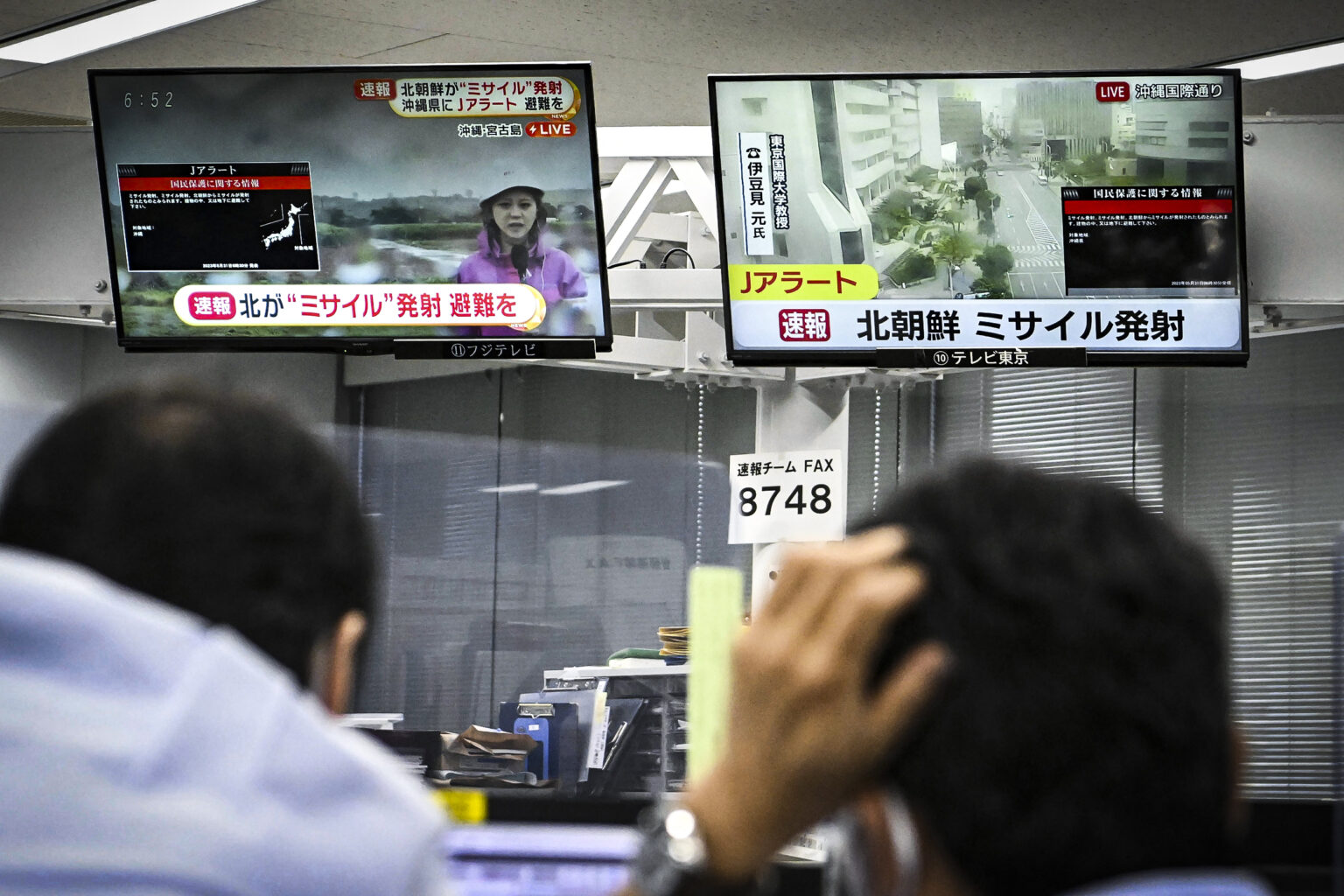Global Courant 2023-05-31 10:53:26
SEOUL, South Korea — North Korea said it failed to launch its first spy satellite into space on Wednesday, striking a blow to the nuclear-armed state’s efforts to bolster its military capabilities amid mounting tensions. tensions with the US and its neighbours.
The newly developed Chollima-1 missile, which carried the Malligyong-1 spy satellite, launched as scheduled at 6:27 a.m. (5:27 p.m. Tuesday ET) from the Sohae Satellite Launching Ground in the country’s northwest, according to the North. The Korean state news agency KCNA.
It then fell into the sea off the west coast of the Korean peninsula “after losing thrust due to the abnormal starting of the second stage engine,” KCNA said in an unusually candid acknowledgment of the failure by the North Korean leader’s regime. Kim Jong Un.
North Korea’s National Aerospace Development Administration said it would investigate what happened and correct any shortcomings before launching again as soon as possible, KCNA said.
South Korea’s Joint Chiefs of Staff said it may have been recovering wreckage from the vehicle in waters about 200 kilometers west of South Korea’s Eocheong Island. Photos shared by the South Korean Ministry of Defense showed some of the salvaged debris.
In a trilateral phone call, the US, Japan and South Korea strongly condemned the launch, which relied on ballistic missile technology and violated United Nations Security Council resolutions. The three countries are closely monitoring the situation “with a high sense of alertness,” Japan’s foreign ministry said in a statement summarizing the call.
South Korea and Japan said they were keeping an eye out for possible additional launches.
The debris is said to be part of the North Korean satellite that crashed into South Korean waters on Wednesday.Ministry of Defense of South Korea / AP
“North Korea has consistently shown its intent to strengthen its nuclear and missile capabilities, and we believe there is a possibility that it will continue to launch various types of missiles, conduct nuclear tests and conduct other provocations in the future. said Japan’s chief cabinet. Secretary Hirokazu Matsuno told reporters.
While the details are still being analyzed, Matsuno said, the rocket appears not to have reached space and there are no reports of any damage.
In response to the launch, South Korea issued a text alert on Wednesday morning urging residents of Seoul, the capital, to prepare for evacuation, but the country’s interior and security ministry later said this was a mistake used to be.
Seoul Mayor Oh Se-hoon apologized for the confusion, but said the warning was sent out of an abundance of caution, noting that, unlike previous occasions, North Korea is moving south instead launched from to the east.
Japan also issued an emergency warning in southern Okinawa Prefecture, which was later lifted.
North Korea said on Tuesday it planned to launch a military spy satellite between Wednesday and June 11, in part to monitor what KCNA called “the dangerous military actions of the US and its vassal forces.”
Last week, the US and South Korean militaries held large-scale firing exercises near the border with North Korea, the first of five rounds between now and mid-June. North Korea views such exercises as rehearsals for an invasion, which the US and South Korea deny.
UN sanctions prohibit North Korea from conducting long-range missile and ballistic missile tests.
TVs in Tokyo are showing a news flash about North Korea’s possible ballistic missile launch Wednesday.Kyodo News via AP
The country has launched such missiles repeatedly anyway, including last month when it said it was testing a solid-fuel intercontinental ballistic missile for the first time. It has also conducted six nuclear tests and is thought to be preparing for a seventh.
North Korea and South Korea technically remain in a state of conflict, after the Korean War ended in 1953 with an armistice rather than a peace treaty. South Korea, which successfully launched its first commercial satellite last week, is expected to launch its own spy satellite later this year.
In a statement, the US National Security Council called on North Korea to resume denuclearization negotiations, which have been stalled since early 2019.
“The door is not closed to diplomacy, but Pyongyang must immediately stop its provocative actions and instead opt for engagement,” NSC spokesman Adam Hodge said.
Hodge said the US would take “all necessary measures” to protect the US homeland and its allies South Korea and Japan.








